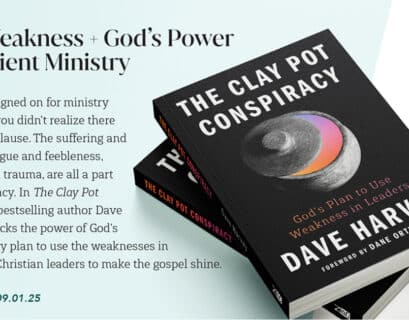I’m sitting in the Louisville airport reading a news release about the fall of another high-profile pastor. A week rarely passes without feeling the tremor from another leader’s tumble. Reading the reasons (which include abandonment of community, refusal of accountability, and misplaced identity) reminds me of how often this list appears when high profile pastors are laid low. These conditions then invite a mob of sins to loot the home and set the soul on fire. The following days headlines might read, “Another Pastor, Another 5-Alarm Fire”.
Independent leaders often grow cold and constantly reach for matches.
After the fire there’s always the fallout. The pundits wag their heads, God’s people grieve the loss, and another church slips the bonds of pastoral trust to battle cynicism and mourn the madness of a man they loved—a lead pastor whose writings they read, preaching they praised, and example they esteemed. And yet as an extraordinary display of His incomprehensible love, God redeems leaders, even the ones with the scandalous sins (2 Sam. 12:7-9, 13).
News like this becomes a pressing invitation sealed in a soiled envelope. The plunge of any pastor represents the potential for every pastor. As we open the letter to read the news, we must accept the invitation to look at ourselves (1 Cor. 10-12). We must answer the offer to think. And if you’re a lead pastor, you must think hard, as if the future of your family and your church depends upon the outcome. After all, it might.
The plunge of any pastor represents the potential for every pastor.
Recently, I wrote a paper for Sojourn Network to invite our pastors to consider their experience of care, accountability and team (you’re welcome to check it out here). I’ve adapted and expanded a small piece of it below to offer some thoughts that will, I pray, serve lead pastors. Here are four things to think on when it comes to care and accountability in your church:
Think Plurality
In a world where almost anything can be professionalized and outsourced, it’s easy for pastors to farm out their care by finding the primary help for their soul outside of the eldership—sometimes even outside of the church. But just as a train engine pulls the caboose, care tows the burden of accountability. If you are finding your care outside of the people who know you best, then it may be high time to get real. You are living a pretty unaccountable life.
This is not a subtle attack on counseling, coaching, or what some have called “parachurch ministries.” I serve on the board of CCEF and have benefitted from both counseling and coaching from outside of our pastoral team. But those services must always supplement the role of the local church, never replace it.
Lead pastors, think about this: One of the quickest ways to undermine the health of your plurality is informing them through your words or actions that they are incompetent to care for the complexities of your position or your soul. When you were appointed the lead guy, the role did not come with a special “get-out-of-local-church-care-free” card to be tucked in the wallet and slapped down when your soul becomes particularly burdened. Let’s be vigilant to build our primary network of care from within and then enjoy the delight that comes from a “neighbor who is near” (Prov. 27:10b).
A wise elder understands this principle. We can’t preach the principle that people should receive care through their local church pastors only to exempt ourselves from the same kind of care. As elders go, so goes the church. When applied to care, this means the manner in which pastors receive care is the very method and model they reinforce for the church.
Think Care
Let’s say you’re reading this and wholeheartedly agree. But your local elders do not operate this way. How does an elder/pastor/church planter build a culture of care?
The culture comes as each elder commits himself to providing care for others. Note that I used the word “providing.” There’s a growing trend, particularly among younger leaders, to see care as primarily something one needs rather than something one gives. This means it’s defined more as a personal need-to-be-met-in-me rather than a ministry-of-love-provided-by-me. In my travels I’m constantly bumping into elders starving for soul care, searching the world to scratch the itch without ever seeing or developing the potential within their own plurality.
Lead pastors, listen up: Care is not first something that elders get; it’s something they give. Care is not typically a culture you inherit. It’s one you must build. A lead pastor can’t assume a culture of care nor simply wish for it to appear. It must be constructed. This culture develops as the lead pastor begins to “care for others the way he would want to be cared for by others” (adapted application of Luke 6:31).
Think Application
Lead pastors, it starts with you. This doesn’t mean you need to do it all. You just need to accept the responsibility to help build the culture to ensure it gets done. For you, and for all of the elders, here are some questions that may help you assess whether you are developing a culture of care:
For the elders, is it clear to each of us that our state of soul matters to each other as much as (or more than!) our performance (John 13:34-35)? Are there at least two elders who know my unique challenges and burdens right now? Do we have a culture that presses in relationally when there is misunderstanding (Matt. 5:23-24)? Are there evidences among us that men are growing because they pursue perspective and receive correction (Prov. 9:8)?
For the lead pastor, are you building, by example, a culture that invites feedback on character and performance, and does that feedback include encouragement (1 Thess. 5:11)? Can you point out specific times (not merely once) where you have recently talked about your life, struggles and/or temptations with another elder or leader in the church, specifically those outside of a ministry context (James 5:16)? Would my wife feel free to call one of the elders if I was tanking? Why or why not?
Think Gospel
As important as plurality, care, and application are to the vitality of a lead pastor’s soul, they are only conduits—never replacements—for the gospel. Our hope for persevering does not rest on the quality of our systems or the care of our comrades, but upon “him who is able to keep you from stumbling and to present you blameless before the presence of his glory with great joy” (Jude 24).
If you are reading this and caught in sin, or you know someone in ministry who has fallen hard and now lives dazed and confused, remember: The gospel is the ultimate wisdom of God for our frailty, our falls, and our failures, no matter how public or scandalous they may be. The gospel reminds us that, compelled by an infinite love, our Savior “was crucified in weakness, but lives by the power of God” (2 Cor. 13:4a). This good news sweeps into our darkest moments to say, “Yes, ‘we also are weak in him, but….we will live with him by the power of God’” (2 Cor 13:4b).
Even in our worst moments, the gospel says that our failures are never big enough to wreck God’s love or stop His plans. Because of the unstoppable affection of Jesus, we are not only rescued—we possess a guarantee that we will cross the finish line!
Lead pastors, as you travel back from T4G or sit quietly at your desk, think on these things.












